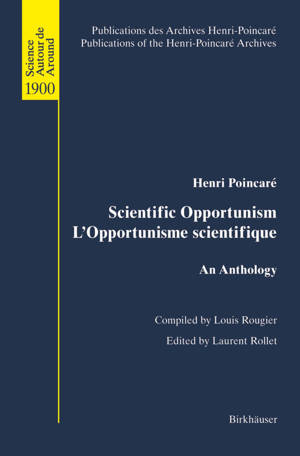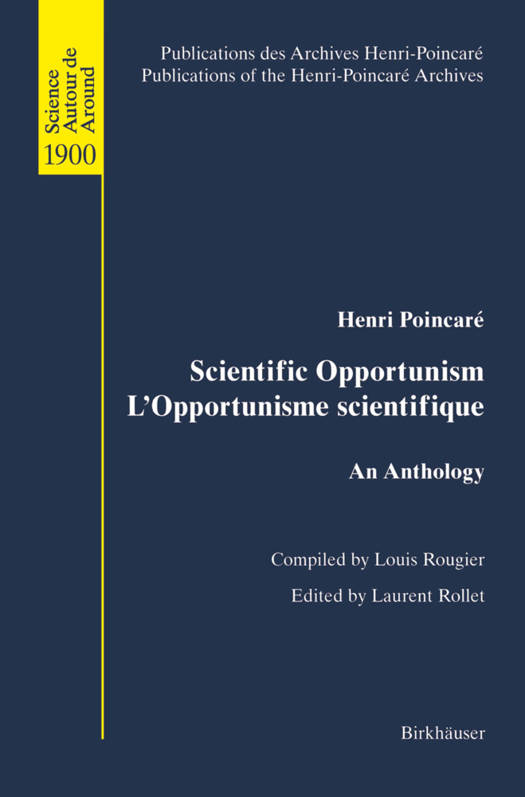
- Afhalen na 1 uur in een winkel met voorraad
- Gratis thuislevering in België vanaf € 30
- Ruim aanbod met 7 miljoen producten
- Afhalen na 1 uur in een winkel met voorraad
- Gratis thuislevering in België vanaf € 30
- Ruim aanbod met 7 miljoen producten
Zoeken
Omschrijving
During his lifetime, Henri Poincaré published three major philosophical books which achieved great success: "La science et l'hypothèse" (1902), "La valeur de la science" (1905) and "Science et méthode" (1908). After his death in 1913, a fourth volume of his philosophical works was published by his heirs as "Dernières pensées" (1913). The four books constitute the core of Poincaré's philosophic works and were given an ovation by scientific and general public. Around 1919, Gustave Le Bon wrote to Poincaré's widow. As the director of the "Bibliothèque de Philosophie Scientifique at Flammarion", he asked her permission to publish a second posthumous volume. "L'Opportunisme scientifique" was intended to be the fifth and final volume of Poincaré's philosophical writings. Louis Rougier had elaborated the project, with the collaboration of Gustave Le Bon, and the approval of the philosopher Émile Boutroux and his son Pierre. Because of the reservations of the mathematician's heirs, this book was never published and Dernières pensées remained his last philosophical book. Nevertheless Poincaré's correspondence - which is kept in the Poincaré Archives at University Nancy 2 - contains a large amount of documents concerning the project, its justification and the discussions between Louis Rougier and the mathematician's heirs. The aim of this book is to restore this episode, which gives some crucial informations about editorial practices of Poincaré and about the posterity of his philosophic thinking.
Specificaties
Betrokkenen
- Auteur(s):
- Uitgeverij:
Inhoud
- Aantal bladzijden:
- 208
- Taal:
- Engels
- Reeks:
Eigenschappen
- Productcode (EAN):
- 9783764365394
- Verschijningsdatum:
- 1/01/2002
- Uitvoering:
- Hardcover
- Formaat:
- Genaaid
- Afmetingen:
- 156 mm x 234 mm
- Gewicht:
- 512 g

Alleen bij Standaard Boekhandel
+ 105 punten op je klantenkaart van Standaard Boekhandel
Beoordelingen
We publiceren alleen reviews die voldoen aan de voorwaarden voor reviews. Bekijk onze voorwaarden voor reviews.











